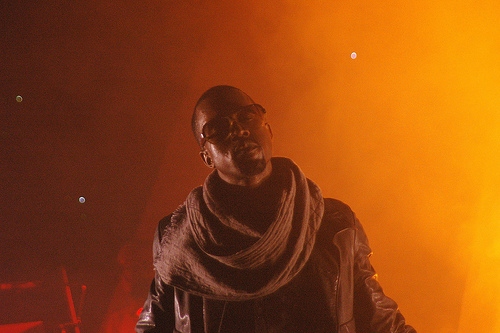Its website declares Yeezianity “THE BEST CHURCH OF ALL TIME!!!!!” Like any good religion, it has several pillars of the faith (“Money is unnecessary except as a means of exchange”) and rules about “Our Savior,” which include never speaking his real name and calling him only Yeezus. But it would appear Kanye West is the greatest savior our world never had.
In a recent interview with VICE, the (anonymous) founder of this religion that worships Kanye West said that Yeezianity was not for real:
“I believe in what it is, and that’s real. But is there a real organized religion behind it? There is not.”
The founder goes on to say that Yeezianity is “just a rehashing Christianity,” with Kanye West taking the place of Jesus. He extols Kanye’s virtues as a creative genius, calling him “the most honest person in our culture.” Okay, perhaps. I’m inclined to disagree, but that’s a fair opinion to have. But the strange thing about this (okay, one of the strange things) is that Yeezianity, as The Week’s Peter Weber points out, is just another strain of humanism.
Humanism is the idea that human agency is to be prized and protected above tradition and rationalism above faith. It is often totally secular, but in the case of Yeezianity, integrates religion — the founder believes there is a god and that god and science are not opposed. Yeezus is the ultimate embodiment of humanist values: self-made, bold, influential.
When asked about why he started the Church of Yeezus, the founder replied at first that the whole point was “to create some controversy. I want people to be like, ‘This is absolutely ludicrous.'” Later, though, he gave a different reason:
“But in a lot of ways, on a personal level, I want to attract Kanye to the point where I can meet him at some point. I’ll be honest, if I had to go with what the ultimate desire was, first and foremost, and what stimulated the inspiration, it was that.”
In a strictly humanist reading of the world, this makes sense. It’s like The Secret. Put your energy out into the world, tell the universe what you want, and it will come to you. This is how the Law of Attraction functions.
But what about what Christians would call “the least of these”? If a good litmus test for any religion is how it treats the poor and disenfranchised, is there room for those of us who enjoy Kanye but may not want to worship at his throne? This is where some anti-humanists, like Michel Foucault, might say that Yeezianity is weakest where it would tend to dominate any person who doesn’t meet the human ideal of Yeezus-likeness.
I’m sure some Yeezianity adherents really do see their faith in Mr. West as a real road to truth, and more power to them. But even as it rehashes Christianity with Yeezus in the central role, there is nothing new to this story. It just codifies the celebrity-worship that has been part of American culture for quite some time now. And codifying that celebrity-worship, ironically, makes the celebrity involved something more than human. Whether Kanye is the humanist ideal or a sort of demi-god will have to be a matter for the Yeezians.





